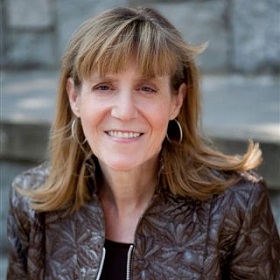For more than 20 years in her private practice in Vancouver, BC, Adler School graduate Candace Plattor, M.A. ’01 has helped both addicted clients and their loved ones understand addictive behaviors and make healthier life choices. An author and registered clinical counsellor, she also provides clinical supervision for therapists working with addicts and their loved ones. For more information about her, visit her website at www.candaceplattor.com.
Today, we share the final post in her three-part guest series on working with addicts and their loved ones.
I began to wonder why a practicing addict who was continually being enabled and not being held accountable for bad behavior would ever choose to change what he or she was doing. And as I started to pose that question to their loved ones in our counseling sessions, I could see the light bulb gradually coming on. As the loved ones decided to make their own healthy choices and set appropriate, self-respecting boundaries, the ripple effect was that the addict almost always decided to make some healthier changes as well.
Another Adlerian tool I’ve always appreciated is the 4 Goals of Misbehavior. I soon began teaching my clients about these goals so that they could recognize the kinds of manipulation they could expect from their addicted loved ones, as well as the responses that could actually assist these dysfunctional behaviors to stop. For example, were the addicts seeking attention or perhaps power? Were they trying to get revenge of some sort, or did they really believe that they were inadequate and unable to live a better life? What were the mistaken beliefs of each goal, and how might the loved ones respond differently when they saw these behaviors being acted out?
As my clients learned about the 4 goals of misbehavior and made the necessary changes, we once again found that the addicts in their lives often settled down and chose differently as well.
I knew I was onto something important.
The significance of social interest
But I also knew that I couldn’t see every loved one who was reaching out to me for help – and, as an Adlerian, my sense of social interest made it impossible for me to simply rest on my laurels. I decided to write a book outlining what I had learned so that other loved ones living elsewhere in the world could try following the techniques that I was now teaching my clients.
In 2010, I published my first book, Loving an Addict, Loving Yourself: The Top 10 Survival Tips for Loving Someone with an Addiction, which went on to win several International and USA Book Awards. In my book, I present a different way of looking at addiction, as well as tried-and-true strategies for ending the enabling that invariably keeps the addiction going.
Two years later, in 2012, I published Loving an Addict, Loving Yourself: The Workbook. This comprehensive, award-winning workbook accompanies the first book by assisting loved ones to go deeper into themselves to look at how their own codependency began, and how to change these behaviors so that they can learn to deal with the very conflict they’ve been trying so hard to avoid — and increase their own self-respect in the process.
I believe that it’s vitally important for counselors – whether working in the addictions field or not – to know how to most effectively help the loved ones of those with addictions. Aside from 12-step programs like Al-Anon and Codependents Anonymous, a number of progressive treatments centers that have incorporated family components, and a smattering of “Affected Others” sharing groups that have recently sprung up across Canada and the U.S., resources for this population are sorely lacking – and they need help equally as much as the addicts they love.
In my opinion, the best way to win the “war on drugs” is to assist the loved ones to stop enabling the addicts. If nothing changes, nothing changes – and if people with addictions continue to be rescued and enabled, why would they willingly change anything?

I really appreciate what you had to say here Candace. I know, as a parent, it’s really hard to not give our children what they want when they want it – especially when they seem to ‘need’ it so badly! But, it is true, just because they think they ‘need’ something does definitely NOT mean this is always in their best interest… let alone good for them, and this is where healthy boundaries for us AND them need to come in to play.